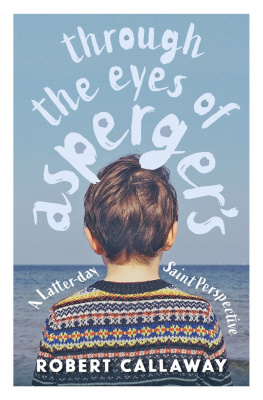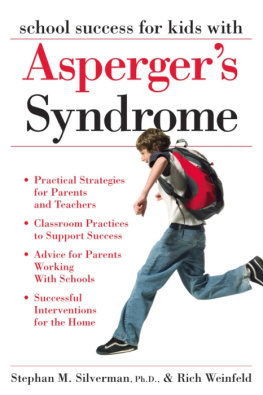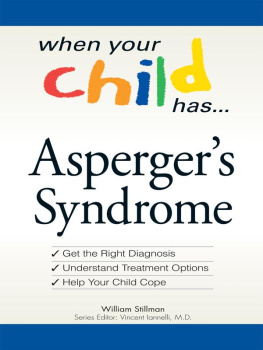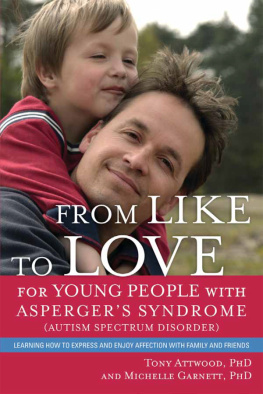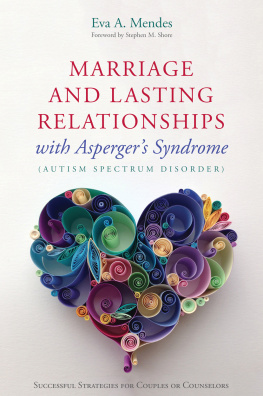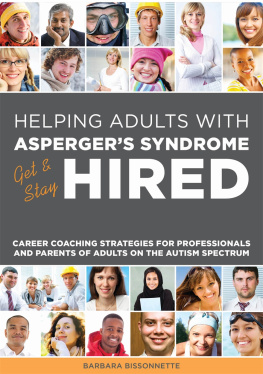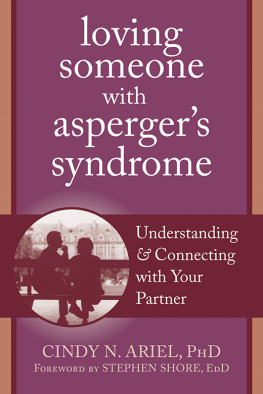B ill has spent a lifetime amongst people with autism, first as a teacher in one of the first schools founded by the National Autistic Society, then in a local voluntary society to his own school, offering education to a group of children who were excluded from any education at the time, and in his Asperger Coaching practice which he has been operating for nearly 20 years. In that time he has met hundreds of families living with autism and Asperger's syndrome and attended endless conferences exploring new research.
He is father of three exciting and grown up children, a keen photographer and an unstoppable guitar player, and while he is a good cook, he is lousy at gardening.
Having lived in Folkestone, Ealing, Andover, Adlestrop, Peterborough and Rotherham, he currently lives in London and travels around talking about Asperger's syndrome, autism and life, and is developing his coaching into the neuro typical world, especially focussing on supporting people in making their own creative projects happen.
He mainly uses his lifetime's experience of autism spectrum disorders to support families living with Asperger's, and within that he is finding ways to help mainstream organisations include people with Asperger and to help those with Asperger's to be included.
PREFACE
I spend more time in the company of people with Asperger's than I do with neurotypicals. I have been coaching them for nearly twenty years now, and have met hundreds of families, children and adults who are all living with Asperger's syndrome. Of course I have not met those who are successfully living with the condition. Indeed, many of those people may not even realise why it is that they all too often feel a bit dissatisfied or confused about their social lives, why they didn't quite get that promotion, or laugh at that joke.
I have visited doctors surgeries, dentists, psychiatric wards and prisons in my work, been in places where I really didn't want the tea I was offered, and been in others where I really did need a drink but was not offered anything. I have witnessed violence, learnt about medication and attended endless meetings in which people seemed to be finding ways to avoid admitting that they could not help. I have listened to people cry their hearts out because they are so upset about the treatment their son or daughter is receiving, and I have been party to many long phone calls which tried to get that situation changed. I have helped young men move out of their family home and into their flats, and I have shared my cooking skills. Most of my time has gone on long conversations which eventually come round to that old question: What do you want?rapidly followed by And how will you go about getting it?
Although it is really difficult to find a model of the condition Oh that's what people with Asperger's are like!I can say that most of the people I have got to know are good people; often they are frustrated and sometimes not in control of their anger, but these are few compared to the many who are trying to find a way to make the world work for them so they don't feel excluded. I have used real experiences to illustrate my writing (names are all changed of course), so that you can meet some of the people I have met in my time.
Sixty years after it was first identified, Asperger's syndrome is still not fully understood scientifically, medically, socially or psychologically. It is a developmental disorder (affecting your experience as you grow up), and in my view a lot of the commonly found negative thinking patterns are learnt. In fact the root cause of the condition is probably only to do with your perceptionand perhaps your digestion.
I wrote this book because I want to offer a cohesive view of how people with this condition go about their lives and what can be done to help them. Although coaching is essentially a dialogue between two people, it is fuelled by some deep understandings and ways of thinking that allow the coach to build a beneficial influence, although of course it is the subjects of the coaching who have to do all the hard work and make the changes in the way they experience their lives.
There is very little support available in the UK, and what there is tends to be either medication or short interventions. Most of the rest is about mopping up after the crisis, and is often not specifically designed or therapeutic. People spend long hours in waiting rooms and on waiting lists in the hope that someone can help, and are frequently disappointed. This book is about a can-do solution which I want to share more widely.
In this book, I will be exploring how people affected by the conditionor perhaps conditionsknown as Asperger's syndrome can best be supported in living successfully with it. This will involve going into how the condition arises, the best understanding of the condition that is currently available, summarising the knowledge coming out of research, and considering how the condition actually affects individuals. Throughout I will be referring to real people I have met. Over more than 35 years in the autism business I have met hundreds of individuals in their families, and I have worked closely with many of them in coaching and teaching situations. I have also worked closely with their families in the course of this exploration, and these experiences of individual stories will be used to counterbalance the generalities that necessarily arise when one examines research and theory, which is constantly trying to identify similarities in order to create a useful pattern.
I am not propounding a miracle cure, or even a solution that will work for everyone in this group, but I am suggesting that a new, accessible, though perhaps slightly quirky approach can make a significant difference to some, and that wider application is worth exploring.
Also, of course, we can take a look at what would help and contrast this to what actually exists in terms of useful and accessible services: I have my opinions, though I am very willing to be contradictedit is never possible to be up to date with all developments. However, the group is disparate, and services, in my experience, seem to find it hard to reach the whole waveband within the spectrum.



